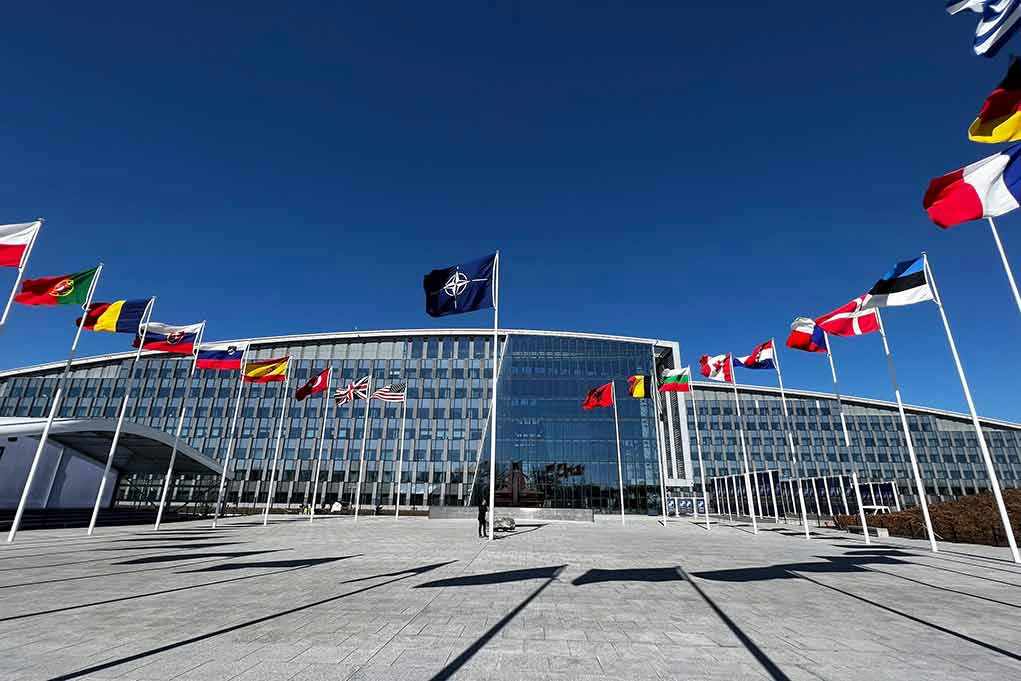
Donald Trump delivered one of his most forceful immigration speeches yet at the United Nations, directly challenging world leaders to seal their borders and expel foreign nationals while warning that unchecked migration threatens to destroy national heritage and sovereignty.
Story Highlights
- Trump used the UN platform to deliver stark warnings about immigration’s impact on national identity
- European nations received specific criticism for allegedly destroying their cultural heritage through migration policies
- The speech represented a bold confrontation of globalist immigration ideology on the world’s biggest diplomatic stage
- Trump’s message directly challenged the UN’s traditional pro-migration stance before an international audience
Confronting Globalist Immigration Policy Head-On
Trump’s appearance at the UN General Assembly delivered an uncompromising message that cut against decades of international consensus on migration. Rather than diplomatic pleasantries, he issued direct warnings that nations allowing unrestricted immigration face cultural and social destruction. His willingness to challenge the UN’s pro-migration orthodoxy in their own hall demonstrated remarkable political boldness, especially given the assembly’s historically liberal stance on border policies.
Europe Bears the Brunt of Trump’s Immigration Critique
European countries received particular scrutiny in Trump’s remarks, with the president explicitly stating they were “destroying your heritage” through permissive immigration policies. This direct confrontation addressed what many conservatives view as Europe’s immigration crisis, where traditional cultures face pressure from rapid demographic changes. Trump’s specific targeting of European policies reflected widespread American conservative concerns about the continent’s approach to migration and its long-term cultural consequences.
The timing of these comments comes as European nations grapple with ongoing migration challenges, from Mediterranean crossings to asylum processing backlogs. Trump’s message resonated with growing European political movements questioning current immigration frameworks, suggesting his critique aligned with rising concerns among European voters themselves.
National Sovereignty Versus International Pressure
Trump’s UN speech represented a fundamental clash between nationalist immigration policies and globalist approaches favored by international organizations. His call for nations to “close borders and expel foreigners” directly contradicted UN migration compacts and international agreements promoting easier movement of people across borders. This confrontation highlighted the tension between national sovereignty and international pressure to accommodate migration flows regardless of domestic concerns.
The speech underscored Trump’s consistent position that nations have the right and responsibility to control their borders without international interference. His message appealed to leaders facing domestic pressure over immigration while operating under international frameworks that often prioritize migrant rights over national interests.
Cultural Heritage as Immigration Policy Foundation
Trump’s emphasis on protecting national heritage through immigration control reflected conservative arguments about preserving cultural identity through demographic stability. His warning that countries faced ruination through unchecked immigration addressed concerns about rapid cultural changes overwhelming traditional institutions and values. This framing positioned immigration policy as fundamentally about cultural preservation rather than mere economic considerations.
The heritage argument resonates with voters who view immigration policy through the lens of cultural continuity and social cohesion. Trump’s willingness to articulate these concerns at the UN demonstrated his commitment to prioritizing national identity over international approval, a stance that appeals to Americans who feel their own cultural heritage faces similar pressures from mass immigration policies.




